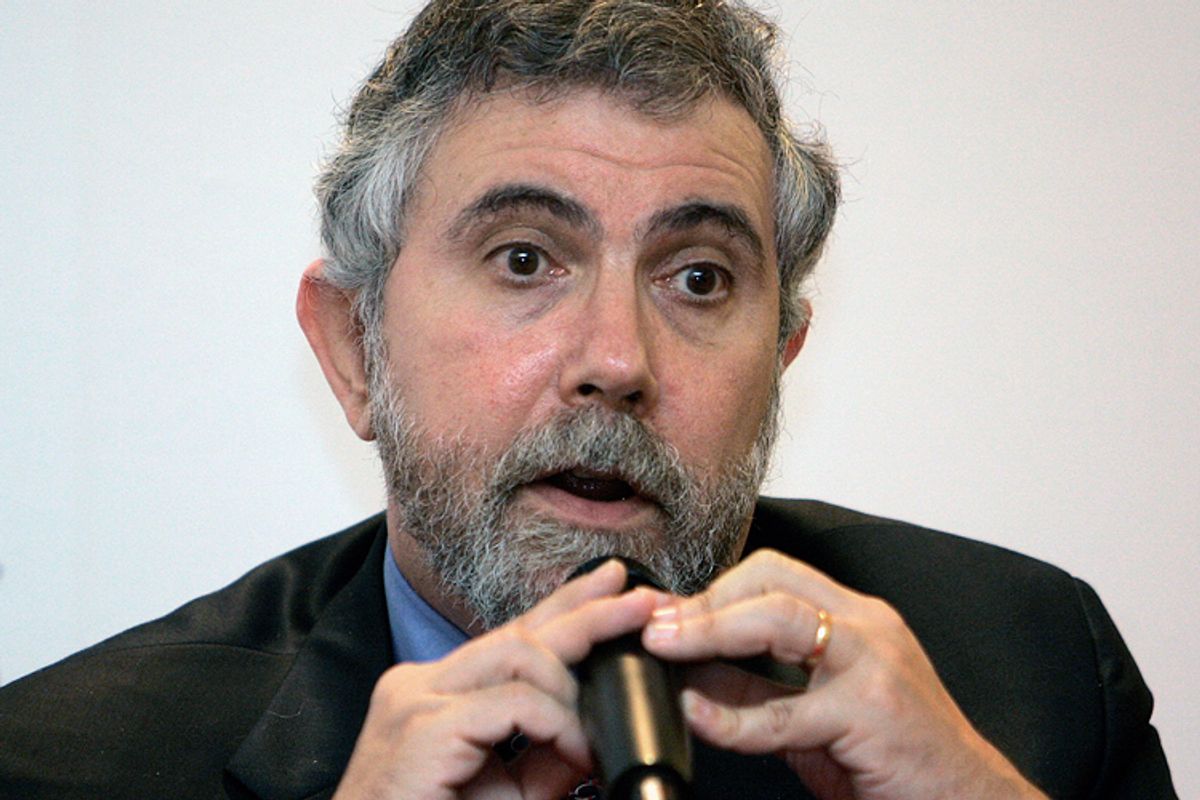In his latest column for the New York Times, award-winning economist and best-selling author Paul Krugman tries to explain one of humanity's most long-standing and terrible flaws: Our propensity for violence and our stubborn tendency to trade politics for war.
Krugman begins by noting that warfare today is a different thing than was the case for most of human history, during which war was more "a contest among crime families over who gets to control the rackets than a fight over principles." Rather than justify war with talk of lofty, abstract values, like human rights or the balance of power, Krugman argues, tribes and families in the pre-modern era would jockey for power with transparently self-interested motivations.
But that was then and this is now; and in the present era, Krugman argues, wealthy nations can no longer argue that war — even ones that result in a relatively quick and total victory — serves their rational self-interest. The global economy is too interdependent, Krugman says, for war not to hurt both sides, no matter the outcome.
If that's the case, though, why is it that countries like Russia and Ukraine nevertheless decide to battle? Krugman guesses that it has to do with politics, in particular the politics in countries where the legitimacy of the leader is tenuous and democratic institutions are weak. He continues:
[T]he fact is that nations almost always rally around their leaders in times of war, no matter how foolish the war or how awful the leaders. Argentina’s junta briefly became extremely popular during the Falklands war. For a time, the “war on terror” took President George W. Bush’s approval to dizzying heights, and Iraq probably won him the 2004 election. True to form, Mr. Putin’s approval ratings have soared since the Ukraine crisis began.
No doubt it’s an oversimplification to say that the confrontation in Ukraine is all about shoring up an authoritarian regime that is stumbling on other fronts. But there’s surely some truth to that story — and that raises some scary prospects for the future.

Shares